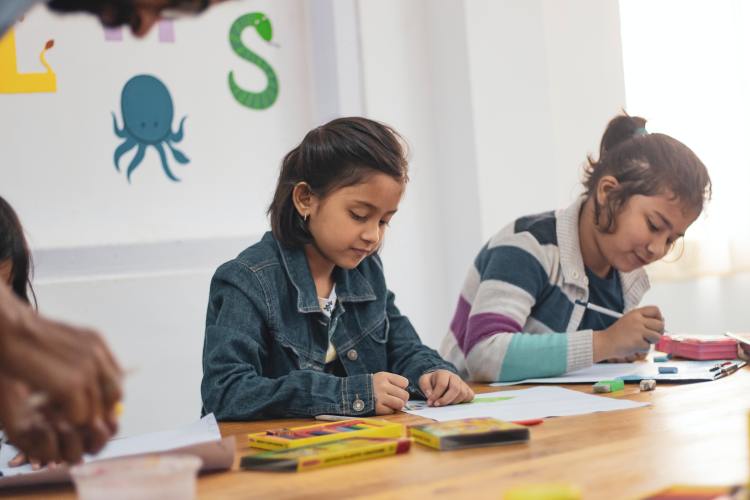We’ve learned in past articles that empathy is an important life skill that everyone should possess. The earlier that children practice empathetic habits the more likely they will continue to do it as they grow older.
By the time children reach the age of 5, they begin to outgrow the “me” mentality of their toddler years and become more attuned to things happening outside their own bubble. Once they reach the formative ages of 7 to 12 and spend more time at school than at home, they will interact more with peers and learn empathetic concepts like sharing and cooperating. Working together in the classroom will make them realize that people have different feelings than they do and that their actions can affect how others feel.

Here are ways you can cultivate your child’s empathy even more:
When talking about feelings, talk about the physical manifestations as well.
Teach kids to link their own physical manifestations to specific experiences, so that they will develop a sense of what other people might feel in similar circumstances. For instance, if your child sees someone who is scared, you might ask her, “Remember that time when you saw the big, barking dog? How did that feel in your body?” By recalling her pounding heart and sweaty palms, she’ll instantly know what someone means when he says he’s afraid.
Put him/her in someone else’s shoes.
If she’s going through a hard time with a friend or even a sibling, try role-playing the situation and have her look at it from both points of view. If a younger sibling refuses to share his toys, she might come to realize that if he is allowed to enjoy his toy a few minutes longer, he might be more inclined to let others have a turn. It does not necessarily mean that he is acting selfishly, rather she just needs to be more patient. On other hand, her own feelings of frustration and disappointment will teach her how hurtful rejection can be – and help her to be kinder the next time she does not want to share something herself.
Help children understand that the world doesn’t revolve around them.
It’s vital for children to learn that sometimes, concern for others should trump their own happiness. For example, they should do household chores even if they would rather watch tv, they should be polite even if they are in a bad mood, and they should not interrupt if their parents are talking to other people.
Prioritize caring in your children’s lives.
For example, when you ask your child about her day in school, don’t just ask if she listened to the teacher or did well in her written works. Ask her if she also showed care and helpfulness to classmates or other adults.
Continue to demonstrate empathy for others, especially those different from you.
Be a good role model. Reflect on how you treat the waiter at the restaurant or the salespeople at the mall. In addition, consider regularly engaging in community service or model other ways of contributing to a community. Even better, do this with your child. Express interest in those from various backgrounds facing many different types of challenges.
The good news is you don’t have to be a professional to teach your child to be mindful and compassionate of other people’s emotions. By simply engaging with your child and practicing what you preach, you can easily pass on the lessons of empathy.
—
Written by Jac of MindNation

